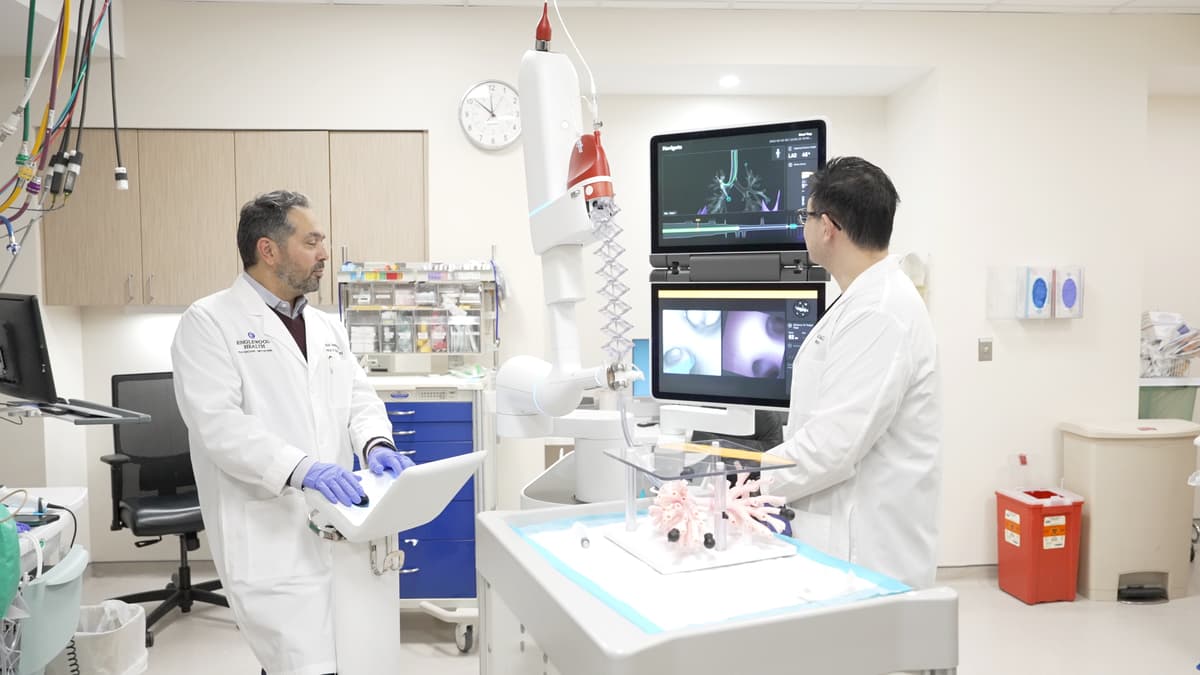Lung Cancer
Find a doctor who treats lung cancer
Whether you’ve been diagnosed with lung cancer, or you have an elevated risk of developing the disease due to a history of smoking or other exposures, The Lefcourt Family Cancer Treatment and Wellness Center provides comprehensive treatment options and support services tailored to your needs.
Our lung cancer experts have extensive experience diagnosing and treating all types and stages of this disease, ensuring you receive the highest standard of care.
Watch Robotic Bronchoscopy for Lung Cancer Diagnosis

Play
Robotic bronchoscopy for lung cancer diagnosis
Robotic bronchoscopy is a revolutionary new diagnostic tool that allows our thoracic surgeons to more successfully identify lung cancer. Early diagnosis and treatment are important for better outcomes.
Why choose Englewood Health for lung cancer care?
- Our board-certified and fellowship-trained lung cancer experts specialize in advanced techniques to diagnose and treat lung cancer while preserving your comfort and quality of life.
- Our thoracic oncologists offer personalized therapies that target the specific biology of your cancer.
- Thoracic surgeons on the team use the latest technologies to perform robotic lung cancer surgery and other minimally invasive thoracic surgeries, helping you recover faster and with less discomfort.
- Your care team includes radiation oncologists with experience in the delivery of radiation therapy that is finely targeted to the tumor area, minimizing its effects on nearby healthy tissue.
- Patient navigation services help manage your care throughout the entire process, from diagnosis through treatment and beyond.
- Lung cancer screening using low-dose CT scanning is available for people at increased risk of the disease and helps find tumors in their earlier, more curable stages.
- Comprehensive support services—including integrative medicine, nutritional counseling, palliative medicine, and more—are available to help you manage life with lung cancer before, during, and after treatment.
Ten to 15 years ago, saying the words ‘lung cancer’ and ‘cure’ in the same sentence was rare. Today, there have been many advances in lung cancer detection and treatment that have greatly impacted survival rates. If we catch lung cancer early, we can potentially cure it. Early detection saves lives. That is the No. 1 reason why screening is so important.
-
Dr. Christos I. Stavropoulos, Chief of Thoracic Surgery and Director of Thoracic Oncology

New Patient Appointments and Second Opinions
Find a thoracic surgeon or medical oncologist to begin your treatment planning or get a second opinion.
Not sure where to start?
Send us a secure message and we will review your case to provide guidance.